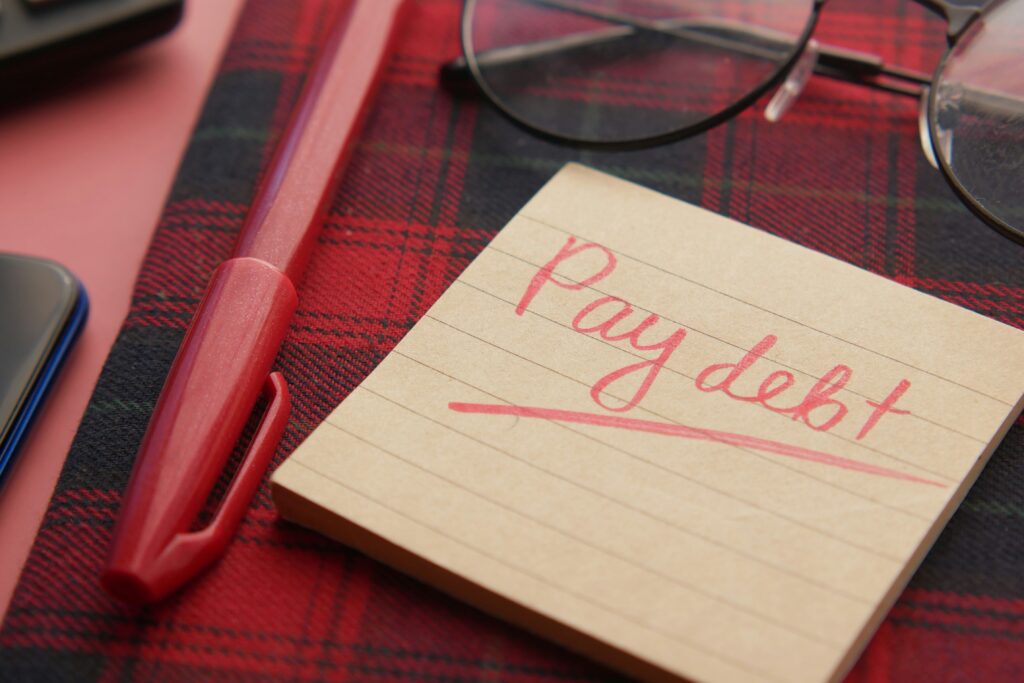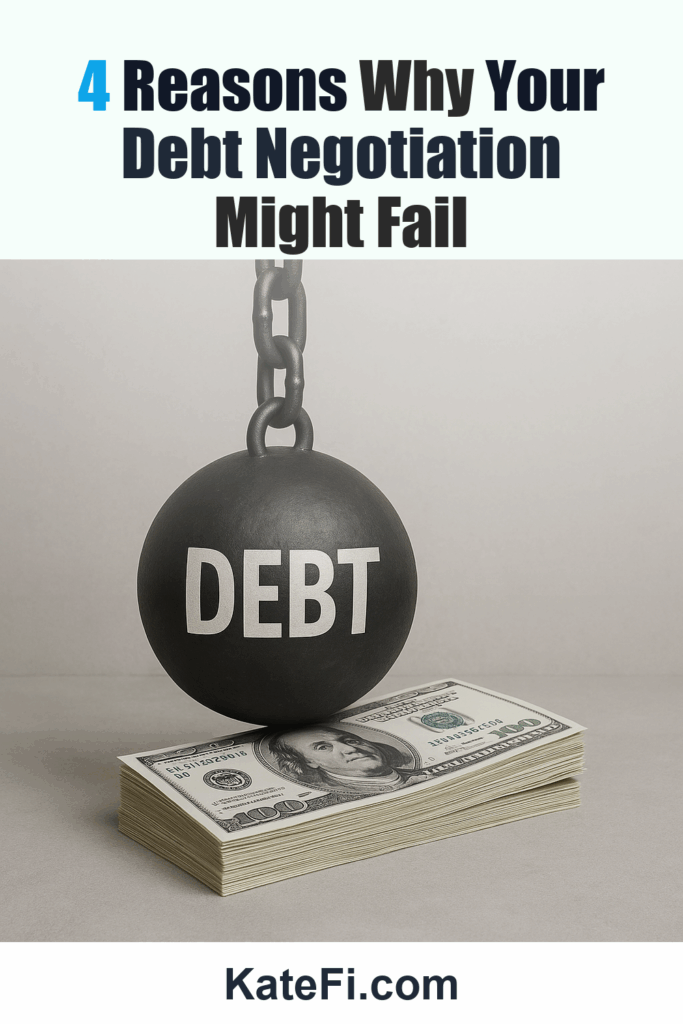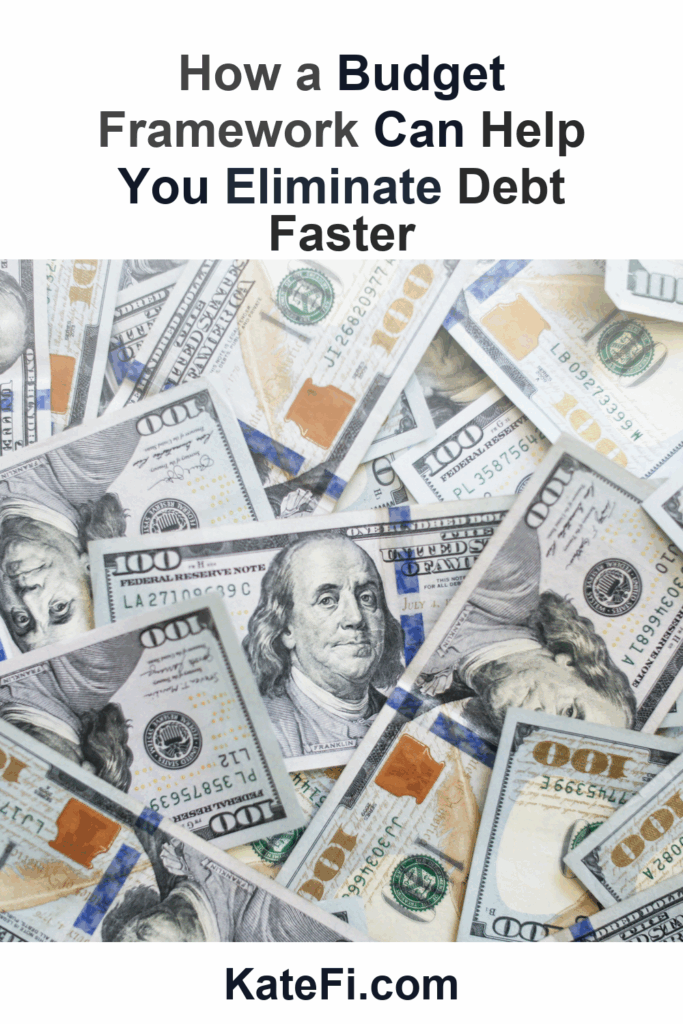Comparison: Debt Consolidation vs. Personal Loans – Which is Cheaper?
In today’s economic landscape, where inflation rates have soared and household debt has reached staggering heights, many are looking for effective ways to manage their financial burdens. According to recent reports, U.S. household debt has surpassed $16 trillion, driven by rising costs in housing, healthcare, and education. This growing debt can lead to a snowball effect, where high-interest rates and fees compound, making it challenging to regain financial footing.
Love our content? Show your support by following us — pretty please!🥺
FOLLOW ON PINTEREST
Hi! I’m Kate, the face behind KateFi.com—a blog all about making life easier and more affordable.
When facing mounting debts, two of the most common solutions are debt consolidation and personal loans. But how do they compare in terms of cost and efficiency? In this post, we will dive deep into the advantages and disadvantages of each option and how to make an informed decision about which is cheaper for your unique financial situation.
Understanding Debt Consolidation
Lower Your Unsecured Debt
If you have $5,000+ in credit card or personal loan debt, a free consult can review options like settlement or hardship plans.
- One-on-one call to review your debts and goals
- See potential monthly payment reductions
- No obligation to enroll
Not available in IL, KS, OR, TN, UT, WV.
Debt consolidation is a strategy that involves merging multiple debts into a single loan with a potentially lower interest rate. This can simplify your monthly payments and potentially reduce the overall interest paid over time. Common methods of debt consolidation include balance transfer credit cards, home equity loans, or debt management programs.
Advantages of Debt Consolidation:
- Simplified Payments: Consolidation allows you to manage one payment instead of multiple debts, reducing the risk of missing payments.
- Potentially Lower Interest Rates: By consolidating high-interest debts, you might secure a lower rate overall.
- Structured Repayment Plans: Many consolidation programs offer a fixed payment schedule, making budgeting easier.
Disadvantages of Debt Consolidation:
- Fees and Costs: Some consolidation loans come with origination fees or closing costs that can add up quickly.
- Risk of Accumulating More Debt: If not managed carefully, some individuals may accumulate new debts while paying off consolidated loans.
The Role of Personal Loans
Personal loans are another popular option for debt relief. These are unsecured loans borrowed from a bank, credit union, or online lender. They can be used for various purposes, including paying off existing debts, funding home improvements, or covering unexpected expenses.
Advantages of Personal Loans:
- Fixed Interest Rates: Many personal loans come with fixed rates, meaning your monthly payments remain stable throughout the loan term.
- Lump-Sum Disbursement: You receive the total loan amount upfront, allowing you to pay off multiple debts immediately.
- Flexible Use: Unlike some consolidation methods, personal loans can be used for anything you need, providing greater flexibility.
Disadvantages of Personal Loans:
- Interest Rates Vary by Credit Score: Individuals with lower credit scores may face higher interest rates, making personal loans more expensive.
- Potential for Fees: Some lenders may charge origination fees, which can increase the overall cost of the loan.
- Credit Impact: Taking out a new personal loan can impact your credit score, especially if it results in a hard inquiry.
Comparing Costs: Debt Consolidation vs. Personal Loans
What You’ll Learn on the Call
- Estimated timeline and monthly payment range
- How credit may be affected in the short term
- What documents to gather to move faster
Not available in IL, KS, OR, TN, UT, WV.
To better understand which option may be cheaper, let’s compare the typical costs associated with both debt consolidation and personal loans.
| Feature | Debt Consolidation | Personal Loans |
|---|---|---|
| Interest Rate | Often lower (depending on method) | Varies; can be higher for lower scores |
| Fees | May have origination/closing fees | Often includes origination fees |
| Monthly Payments | One payment, possibly lower | Fixed monthly payments |
| Time to Fund | Longer (especially with programs) | Typically faster (1-7 days) |
As you can see from the table, the choice between debt consolidation and personal loans can often boil down to individual circumstances, including your credit score and the specific terms offered by lenders.
Slowing Down the Snowball Effect
Both debt consolidation and personal loans can help in slowing down the snowball effect of accruing interest and fees, but it’s essential to employ them wisely. Here are some strategies to consider:
- Understand Your Current Debt: Gather all necessary documents, including your credit report, outstanding balances, and interest rates. This will provide a clearer picture of your financial situation and help you determine the best approach.
- Evaluate Lender Options: Take the time to shop around for the best interest rates and terms. This can make a significant difference in the total amount paid over the life of the loan.
- Consider Additional Costs: Be wary of any hidden fees, such as origination or prepayment penalties. The total cost of borrowing can sometimes outweigh the benefits of a lower interest rate.
- Consult a Financial Advisor: Getting professional advice can help you understand the potential impacts on your credit score and overall financial health.
To take the next step towards financial freedom, consider getting a free consultation to explore your options. Understanding what relief programs might be available to you can make a significant difference in your debt management journey.
Credit Impact: A Quick Discussion
Both debt consolidation and personal loans can impact your credit score. When you apply for either, a hard inquiry is typically conducted, which can temporarily lower your score. However, responsibly managing either option can lead to improved credit in the long run. By reducing your debt-to-income ratio and making timely payments, you may see your credit score improve over time.
For a faster review of your financial options, gather the following documents:
- Recent credit report
- List of outstanding debts
- Income statements (pay stubs, tax returns)
- Current expenses (utilities, rent, groceries)
Taking these steps will provide a comprehensive overview of your situation and allow for a quicker assessment.
Conclusion: Making the Right Choice for You
In a world where debt is becoming increasingly common, understanding your options is more critical than ever. Both debt consolidation and personal loans offer viable paths to financial relief, but it’s essential to weigh the pros and cons of each approach in the context of your situation.
By considering factors such as interest rates, fees, repayment terms, and your overall financial goals, you can make a more informed decision about which route is cheaper and more beneficial for your specific needs. Remember, every financial journey is unique, and what works for one person may not work for another.
If you’re feeling overwhelmed by debt, it’s time to take action.
✅ See If You Qualify for Debt Relief
Together, we can navigate through the complexities of debt management and find the solution that best fits your financial landscape.
Important: This content is for education only—not legal, tax, or financial advice. Results and eligible programs vary by situation and state. Fees apply if you enroll and complete a program. Debt relief can affect credit; missed payments may lead to collections/lawsuits. Not available in IL, KS, OR, TN, UT, WV.






















